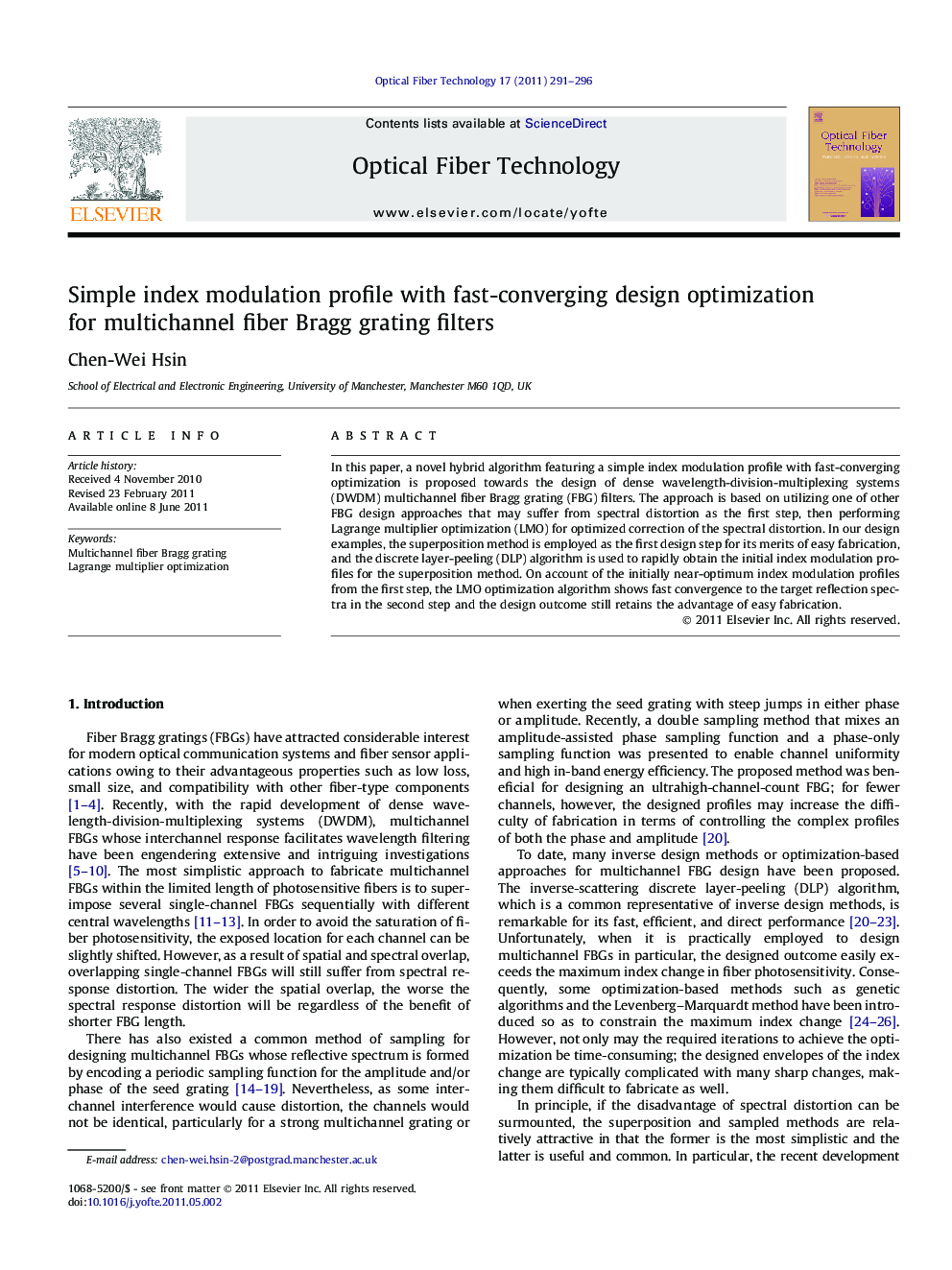| Article ID | Journal | Published Year | Pages | File Type |
|---|---|---|---|---|
| 462475 | Optical Fiber Technology | 2011 | 6 Pages |
In this paper, a novel hybrid algorithm featuring a simple index modulation profile with fast-converging optimization is proposed towards the design of dense wavelength-division-multiplexing systems (DWDM) multichannel fiber Bragg grating (FBG) filters. The approach is based on utilizing one of other FBG design approaches that may suffer from spectral distortion as the first step, then performing Lagrange multiplier optimization (LMO) for optimized correction of the spectral distortion. In our design examples, the superposition method is employed as the first design step for its merits of easy fabrication, and the discrete layer-peeling (DLP) algorithm is used to rapidly obtain the initial index modulation profiles for the superposition method. On account of the initially near-optimum index modulation profiles from the first step, the LMO optimization algorithm shows fast convergence to the target reflection spectra in the second step and the design outcome still retains the advantage of easy fabrication.
► The two-step design approach for multichannel fiber Bragg grating filters. ► The integration of the superposition method and Lagrange multiplier optimization. ► The approach features its rapid convergence and simple index modulation profiles. ► Four-channel and eight-channel design examples are performed by the design approach.
